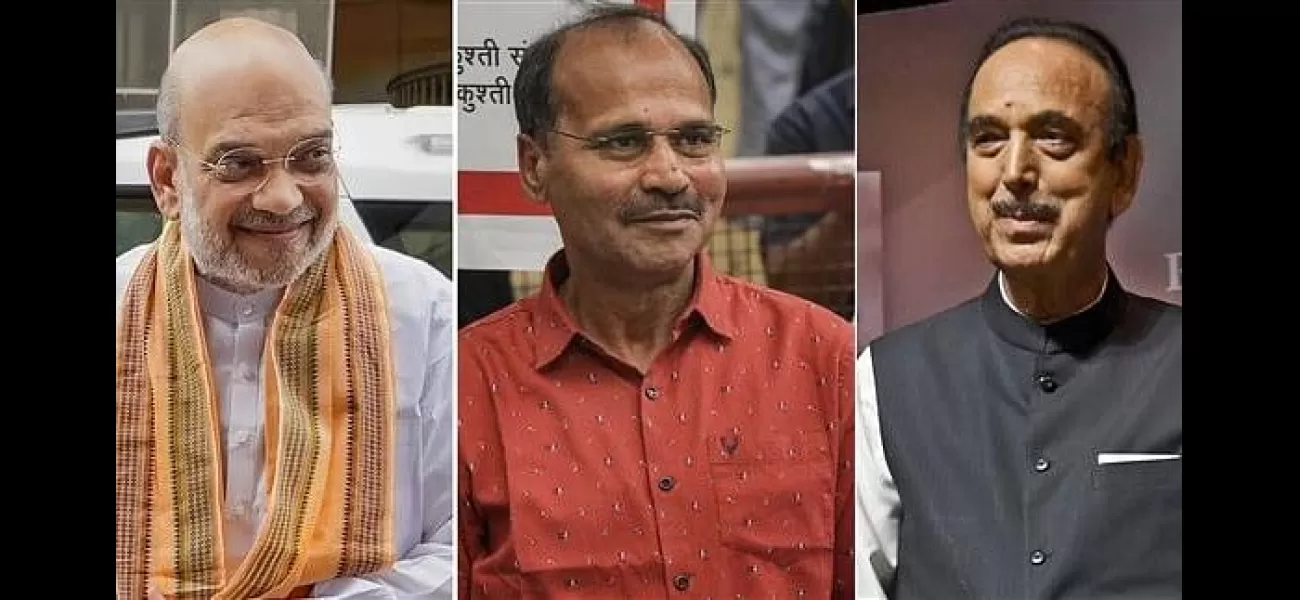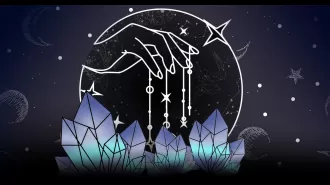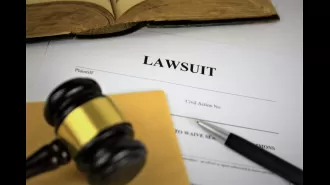Govt creates panel to explore "One Nation, One Election" idea, with Amit Shah, Adhir Ranjan Chowdhury and Ghulam Nabi Azad as members.
September 2nd 2023.

The government on Saturday announced the formation of an eight-member high-level committee to review and make recommendations on the issue of simultaneous elections for the Lok Sabha, state assemblies, municipalities and panchayats. The committee, which will be headed by former President Ram Nath Kovind, includes Home Minister Amit Shah, Congress leader in Lok Sabha Adhir Ranjan Chowdhury, former leader of the Opposition in Rajya Sabha Ghulam Nabi Azad and former finance commission chairman NK Singh.
The surprise announcement of the committee has further raised the political temperature, with the opposition bloc INDIA gathering in Mumbai to express their collective outrage. The opposition alliance has criticized the decision as a threat to the nation’s federal structure. Other members of the committee include former Lok Sabha Secretary General Subhash C Kashyap, senior advocate Harish Salve, former Chief Vigilance Commissioner Sanjay Kothari, Law Minister Arjun Ram Meghwal (as special invitee), and Law Secretary Niten Chandra (as secretary to the panel).
The committee has been tasked to examine and recommend specific amendments to the Constitution, the Representation of the People Act and any other laws and rules which would require amendments for the purpose of holding simultaneous elections. It will also suggest a framework for synchronizing elections and suggest the phases and timeframe within which simultaneous elections may be held. The committee will also analyze and recommend solutions to scenarios such as hung House, adoption of no-confidence motion, or defection or any other such event in case of simultaneous elections.
Furthermore, it will examine and recommend the modalities of use of a single electoral roll and electoral identity cards for identification of voters in elections to the Lok Sabha, state legislative assemblies, municipalities and panchayats. This is in line with the suggestion by a parliamentary committee that a common electoral roll will help reduce expenses and also prevent manpower being deployed for a work on which another agency is already working.
In addition to the amendments to the Constitution, the panel will also review the logistics and manpower needed for the massive exercise, such as additional number of EVMs and paper-trail machines, polling and security personnel. The committee will also examine and recommend necessary safeguards for ensuring the continuity of the cycle of simultaneous elections and recommend necessary amendments to the Constitution so that the cycle of simultaneous elections is not disturbed.
The committee will hear and entertain all persons, representations and communications which in its opinion can facilitate its work and enable it to finalize its recommendations. The notification did not specify a timeframe to submit the report, but it stated that the panel will commence functioning immediately and make recommendations “at the earliest”.
This issue of simultaneous elections has been around for some time now. In the past, elections to the Lok Sabha and legislative assemblies were mostly held simultaneously from 1951-52 to 1967, after which this cycle got broken. Now, elections are held almost every year and even within a year at different times, which leads to a huge expenditure by the government and other stakeholders. It also leads to diversion of security forces and other electoral officers engaged in such elections from their primary duties for significantly prolonged periods. The Model Code of Conduct also disrupts developmental work for prolonged periods due to frequent polls.
It remains to be seen if the committee will come up with viable solutions to ensure the success of One Nation, One Election, One Opposition Too?
The surprise announcement of the committee has further raised the political temperature, with the opposition bloc INDIA gathering in Mumbai to express their collective outrage. The opposition alliance has criticized the decision as a threat to the nation’s federal structure. Other members of the committee include former Lok Sabha Secretary General Subhash C Kashyap, senior advocate Harish Salve, former Chief Vigilance Commissioner Sanjay Kothari, Law Minister Arjun Ram Meghwal (as special invitee), and Law Secretary Niten Chandra (as secretary to the panel).
The committee has been tasked to examine and recommend specific amendments to the Constitution, the Representation of the People Act and any other laws and rules which would require amendments for the purpose of holding simultaneous elections. It will also suggest a framework for synchronizing elections and suggest the phases and timeframe within which simultaneous elections may be held. The committee will also analyze and recommend solutions to scenarios such as hung House, adoption of no-confidence motion, or defection or any other such event in case of simultaneous elections.
Furthermore, it will examine and recommend the modalities of use of a single electoral roll and electoral identity cards for identification of voters in elections to the Lok Sabha, state legislative assemblies, municipalities and panchayats. This is in line with the suggestion by a parliamentary committee that a common electoral roll will help reduce expenses and also prevent manpower being deployed for a work on which another agency is already working.
In addition to the amendments to the Constitution, the panel will also review the logistics and manpower needed for the massive exercise, such as additional number of EVMs and paper-trail machines, polling and security personnel. The committee will also examine and recommend necessary safeguards for ensuring the continuity of the cycle of simultaneous elections and recommend necessary amendments to the Constitution so that the cycle of simultaneous elections is not disturbed.
The committee will hear and entertain all persons, representations and communications which in its opinion can facilitate its work and enable it to finalize its recommendations. The notification did not specify a timeframe to submit the report, but it stated that the panel will commence functioning immediately and make recommendations “at the earliest”.
This issue of simultaneous elections has been around for some time now. In the past, elections to the Lok Sabha and legislative assemblies were mostly held simultaneously from 1951-52 to 1967, after which this cycle got broken. Now, elections are held almost every year and even within a year at different times, which leads to a huge expenditure by the government and other stakeholders. It also leads to diversion of security forces and other electoral officers engaged in such elections from their primary duties for significantly prolonged periods. The Model Code of Conduct also disrupts developmental work for prolonged periods due to frequent polls.
It remains to be seen if the committee will come up with viable solutions to ensure the success of One Nation, One Election, One Opposition Too?
[This article has been trending online recently and has been generated with AI. Your feed is customized.]
[Generative AI is experimental.]
0
0
Submit Comment





